(e)
Obligation to report at specified times to a specific authority
Obligation to report at specified times to a specific authority
Yes
What is / are the body / bodies responsible for supervising the measures?
| Supervisory body / bodies
Public prosecutor / police
What is the duration of the measure?
| Maximum duration
If the case is still in the pre-trial phase:
- 1 year and 6 months for serious crimes punishable by more than 5 years of imprisonment.
- 8 months for all other cases.
If the case has already been submitted to court, the measure may remain in effect until the conclusion of the proceedings.
Prolongation
| Can it be prolonged?
Yes
| By who?
The court that issued the original decision.
| for HOW long?
Not expressly regulated.
Can the measures be modified during the pre-trial or trial stage?
Yes
Can the measure be appealed?
Yes (to who↓)
All court decisions recognising or refusing to recognise a decision for imposing supervision measures can be appealed before the respective court of appeal.
Obligation to report at specified times to a specific authority
Yes
What is / are the body / bodies responsible for supervising the measures?
| Supervisory body / bodies
The Public Prosecutor of First Instance in the area of habitual residence of the person against whom the decision regarding supervision measures has been issued
What is the duration of the measure?
| Maximum duration
Pretrial detention does have time Limits.
However, the measures adopted during provisional release do not have a specific limit in the legislation.
The restrictive measures usually remain in force until the resolution of the criminal procedure.
They may be in force during the pendency of the case.
Prolongation
| Can it be prolonged?
Yes
| By who?
The Prosecutor of the Court that issued the decision or to which the investigating authority that issued it belongs, submits to the competent authorities a proposal for the issuance of subsequent decisions regarding the surveillance measures already imposed, taking into account the protection of the victims and citizens, as well as the safeguarding of public order. The Court of the inquiry judge who issued the initial decision, issues the subsequent decision as well. The subsequent decisions may include the renewal of the initial decision concerning surveillance measures.
| for HOW long?
They may be in force during the pendency of the case.
Can the measures be modified during the pre-trial or trial stage?
Yes (explanation↓)
The Prosecutor of the Court that issued the decision or to which the investigating authority that issued it belongs, submits to the competent authorities (The court or the inquiry judge) a proposal for the issuance of subsequent decisions regarding the surveillance measures already imposed, taking into account the protection of the victims and citizens in general, as well as the safeguarding of public order.
The Court of the inquiry judge who issued the initial decision, issues the subsequent decision as well.
The subsequent decisions may include the modification of the surveillance measures.
Can the measure be appealed?
Yes (to who↓)
According to article 50 of Law 4307/2014, the prosecutor of the usual residence of the suspect recognizes, by an order, the decision transmitted to him, within a time limit of 20 working days from the receipt of the decision regarding the surveillance measures. If an appeal has been filed against the decision, the recognition period is extended by another 20 working days.
As the procedure for the above mentioned appeal is not prescribed by law 4307/2014, the general provision of Article 459 of the CCP will apply, according to which “any doubt or objection concerning the execution of a request for judicial assistance shall be resolved by the Appeals Council, which shall give its decision within eight days. An appeal against that decision may be brought by the prosecutor and by the suspect.
Obligation to report at specified times to a specific authority
Yes
What is / are the body / bodies responsible for supervising the measures?
| Supervisory body / bodies
The supervision of this coercive measure is the responsibility of the entity designated by the judge handling the case, such as judiciary authorities (e.g. the Public Prosecutor, the criminal investigation judge or the judge handling the case) and law enforcement bodies, such as Polícia de Segurança Pública (PSP) or the Guarda Nacional Republicana (GNR).
In case there are difficulties in applying or enforcing this measure due to unforeseen circumstances or practical difficulties, the judge may require the assistance of PSP and GNR to enforce the compliance with the measure.
What is the duration of the measure?
| Maximum duration
It depends on the phase of the process:
- With the archiving of the inquiry; or
- With the delivery of the order of non-indictment; or
- With the delivery of the order rejecting the indictment; or
- With the acquittal sentence, even if an appeal has been lodged against it; or
- Until the supervisory measure is extinguished upon the pronouncement of a final binding sentence.
Or when the maximum legal duration for such measures expires:
- 8 months without charges
- 1 year and 4 months without formal indictment
- 2 years and 4 months without sentencing in the first instance court
- 3 years without final and binding decision
Prolongation
| Can it be prolonged?
Yes, but only if the conditions that justified the measure continue to exist
| By who?
The judge who imposed the measure.
| for HOW long?
Until the supervisory measure is deemed as necessary and proportional.
However, its duration is subject to a maximum time limit for each phase of the legal proceedings. Once this maximum period expires, the measure is extinguished and can no longer be enforced at that stage of the proceedings.
Nonetheless, according to jurisprudence, a supervisory measure that has expired due to reaching its maximum duration can be reapplied later in a subsequent phase of the proceedings. This is because the law does not impose a single, continuous time limit for each coercive measure but instead establishes different time limits depending on the procedural stage of the case.
Can the measures be modified during the pre-trial or trial stage?
Yes (explanation↓)
The Public Prosecutor and the defendant may request the modification of the supervisory measure, due to developments of the case.
The judge must periodically review the measure to ensure it remains necessary and proportionate.
It may be adjusted to a less or more restrictive measure, provided the modification is justified and based on the specific developments of the case
Can the measure be appealed?
Yes (to who↓)
The Public Prosecutor or the defendant may appeal the decision to the hierarchically higher court.
Obligation to report at specified times to a specific authority
Yes
What is / are the body / bodies responsible for supervising the measures?
| Supervisory body / bodies
National Police
What is the duration of the measure?
| Maximum duration
Measures remain active for the duration of the trial or investigation until the judge deems otherwise. No strict limit applies, but measures must align with the reasonable duration of the case.
Prolongation
| Can it be prolonged?
Yes
| By who?
Prosecutors, Judges or Courts
| for HOW long?
Prolonged throughout the duration of the case, ‘if there are strong reasons that justify them’.
Can the measures be modified during the pre-trial or trial stage?
Yes
Can the measure be appealed?
Yes (to who↓)
If the measure was imposed by the prosecutor during the pre-trial investigation – the measure can be appealed to the judge of preliminary chamber at the court that will be responsible for trial.
If the measure was imposed by the preliminary chamber judge or the court during the trial stage – the measure can be appealed at the higher court.
Obligation to report at specified times to a specific authority
Yes
What is / are the body / bodies responsible for supervising the measures?
| Supervisory body / bodies
It depends on the authority to which the report is being made. Ultimately, the Judge or Court would have to be informed of compliance or non-compliance with the measure.
What is the duration of the measure?
| Maximum duration
Pretrial detention does have time limits.
However, the measures adopted during provisional release (in the provisional release order) do not have a specific limit in the legislation;
These are precautionary measures that usually remain in force as long as the Judge or Court deems appropriate and may be in force until the resolution of the criminal procedure. They may be in force “during the pendency of the case”.
Prolongation
| Can it be prolonged?
Yes
| By Who?
The Judges or Courts that have issued the resolution of provisional release of the accused (which contains the specific measure) in the criminal proceedings.
| FOR HOW LONG?
They may be in force "during the pendency of the case"
Can the measures be modified during the pre-trial or trial stage?
Yes (explanation↓)
The provisional release orders (with the measures they contain) may be amended throughout the course of the case.
In order to agree to the provisional release with bail of someone who is at liberty or to aggravate the conditions of the provisional release already agreed by replacing it with imprisonment or provisional release with bail, a request from the Public Prosecutor’s Office or from any accusing party will be required.
However, if in the opinion of the judge or court there are reasons, he or she will proceed to issue an order to amend the precautionary measure, or even imprisonment, if the person under investigation or accused is at liberty, but must summon, within the following 72 hours, the indicated appearance.
Whenever the Judge or Court understands that it is appropriate to modify the provisional release in terms more favourable to the person subject to the measure, he or she may order it, at any time, ex officio and without being subject to the request of a party.
Can the measure be appealed?
Yes (to who↓)
Yes, an appeal may be filed against orders that decree, extend or deny provisional release of the person under investigation or accused (which may contain measures to control the person provisionally released).
The following may be filed against orders of the Examining Magistrates or Judges:
- The remedy of reconsideration may be lodged against all orders by the Examining Magistrate
- And the appeal (to be lodged before the same Judge or Magistrate, but decided by the competent superior Court).
The appeal may be filed subsidiarily with the remedy of reconsideration or separately. In no case will it be necessary to file the remedy of reconsideration before filing the appeal.
(the normal appeal system is followed)

